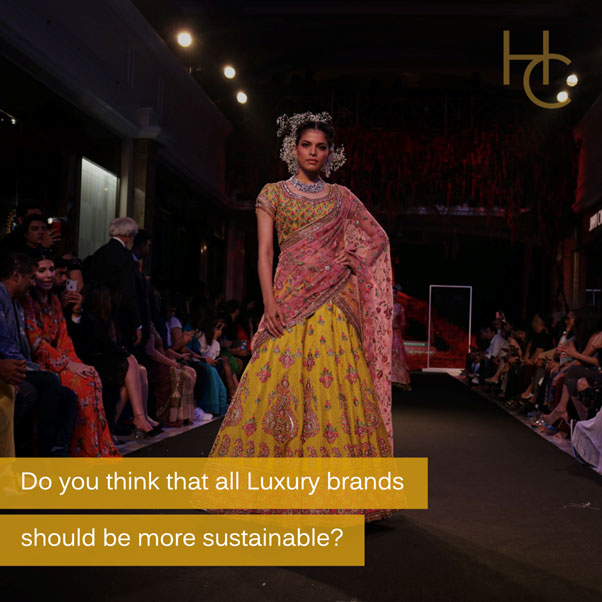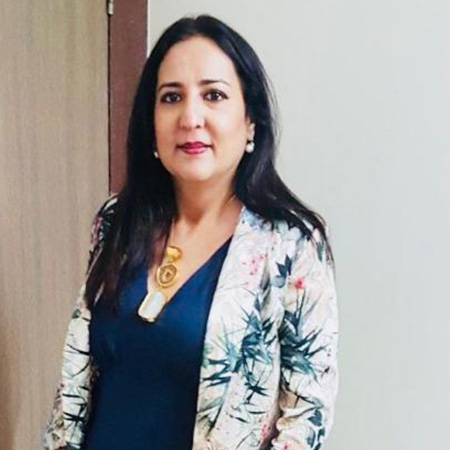How Do I Find My Ikigai in Luxury?
- 16th Dec 2021
- 1965
- 0

The traditional definition of luxury has always been associated with excessive consumerism, but the changing attitudes of millennials are driving a massive shift across the industry. The 2030 vision of luxury with a purpose is catching on with inclusive think-fluencers.

Sustainability is the buzzword today and a brand new decade is under way where the Gen Z is evolving into a cohort of sensible adults who are supporting brands that have a positive impact on the environment and society; older consumers are already leaning that way. The next 10 years leading will be about delivering on these commitments. Meanwhile, newness, exclusiveness and elusiveness are all dated misnomers, according to a Bain & Company report.
Can Luxury be Sustainable?
I would argue that it is possible but sustainable luxury might take some sacrifice. After all - historically, investments in any business have been regarded through a narrow return-on-investment lens. The question was never ‘is this the right thing to do?’, it was ‘will this help us gain more sales?’. But Covid-19 pandemic has changed that. There is growing evidence of the urgency for sustainable approaches across luxury businesses and start-ups. Even before sustainable fashion became a hot topic, Stella McCartney led the way in putting sustainable practices at the heart of running her business – she founded her eponymous brand in 2001: all cashmere is recycled, no real leather or fur is used, and all cotton is organic. McCartney is not the first to explore the realm of faux fur, however. It is said that the anti-fur movement really began back in the 80s and 90s, with brands such as Fendi and Calvin Klein opting for synthetic fibres.
ESG Matters…
The differentiator is no longer whether a company is sustainable, it is now whether they have operationalised it in their processes. Focusing on ‘people and the planet’, businesses can generate greater long-term value. Global investors, pension funds, and financial institutions are demanding that the companies they invest in, track and report Environmental, Social and Governance (ESG) performance. ESG-driven financing has seen a flurry of activity amongst the luxury fashion companies since 2020, such as Chanel and Burberry, while Ferragamo and Moncler took on sustainability linked loans and credit agreements.
Likewise for luxury travel, from hotels through airlines to private jets - Travellers are concerned about the environmental impact of their holiday, while stakeholders are increasingly likely to examine a hotel’s green credentials. ESG now sits at the forefront of boardroom conversations and evidently only a strong ESG based corporate strategy will help to improve financial performance and brand equity of the hospitality sector.
The ‘business of sustainability’ is now truly coming of age. It will mean resale, rental and transparent supply chains. Luxury has been increasingly pushing new circular business models. Rent the Runway – which allows people to rent designer styles for work, weekends and events – together with Vestiaire Collective – the leading global app for promoting the circular fashion movement as an alternative to overconsumption and the wasteful practices of the fast fashion industry – are making the shift from owning to experiencing. But this doesn’t mean the big players are sitting on their hands. Three years ago, Richemont made a bold move in the same direction when it bought Watchfinder & Co, which buys, sells and part-exchanges pre-owned luxury watches. And recently, Burberry launched its first ever rental and resale service for its trench coats, handbags and scarves, in partnership with My Wardrobe HQ. Now, fans of the British luxury brand can rent its iconic trench coat with vintage check in cotton gabardine for £170 a week, or buy second-hand for £750! With this move, Burberry is taking steps towards its circular fashion drive to offer a new way to shop sustainably for luxury pieces of the highest quality and craftsmanship, whilst expanding on their existing reuse, repair and recycling initiatives.
The Signs of Adaptability

Strategic CSR activities of watch brand Rolex have positively impacted its brand equity. With its Rolex Award for Enterprise, the luxury watch brand gives a large cash prize to entrepreneurs between the ages of 18 and 30 for projects that are bringing about a positive environmental or cultural change. This approach towards sustainable luxury and socially conscious innovation is bright, refreshing, and taking real steps to improve, not only the lives of individuals but the planet as a whole. Luxury goods companies are rushing to shine in ESG terms. Large luxury brands are already catering to their affluent millennials’ expectations for social responsibility and positive environmental impact. The Kering group, for example, which owns Gucci, Stella McCartney, and Saint Laurent, among other high-end labels, is increasing its share of raw materials that are renewable to improve its sustainability. But is it still mostly high-level image building?
Pause Philosophy anyone?
According to a INSEAD report, luxury fashion can be made sustainable; without sacrificing style. First by introducing a “slow fashion” mindset; the second requires a change in the processes, for example using materials that have a lower impact on the environment; the third scenario sees the state or the industry itself playing a role through regulation. There you have it. By following these three different approaches, luxury can be sustainable.
With millennials and Generation Z consumers making up 30 percent of all luxury shoppers and on track to represent 45 percent by 2025, luxury brands need to accelerate their work towards sustainability and conscious living if they want to stay relevant. There are no simple strategies to implement, but there is an opportunity to push the luxury industry into the right track of sustainability for the benefit of both customers and brands.
If you’re interested in luxury and sustainability, don’t hesitate to look into our course, you’ll be able to find a broad selection of modules to help you navigate the retail industry. Find out more on this online at Helen Cooper School of Luxury. To register, download the prospectus today and email us at learn@helencooperluxury.com
 Neena Maini Malhotra
Neena Maini Malhotra


Comments
No comments yet.
Add Your Comment
Thank you, for commenting !!
Your comment is under moderation...
Keep reading luxury post